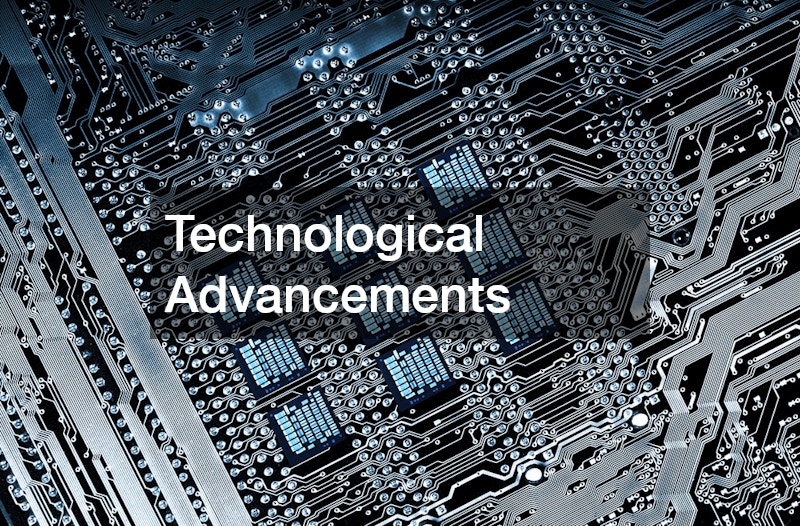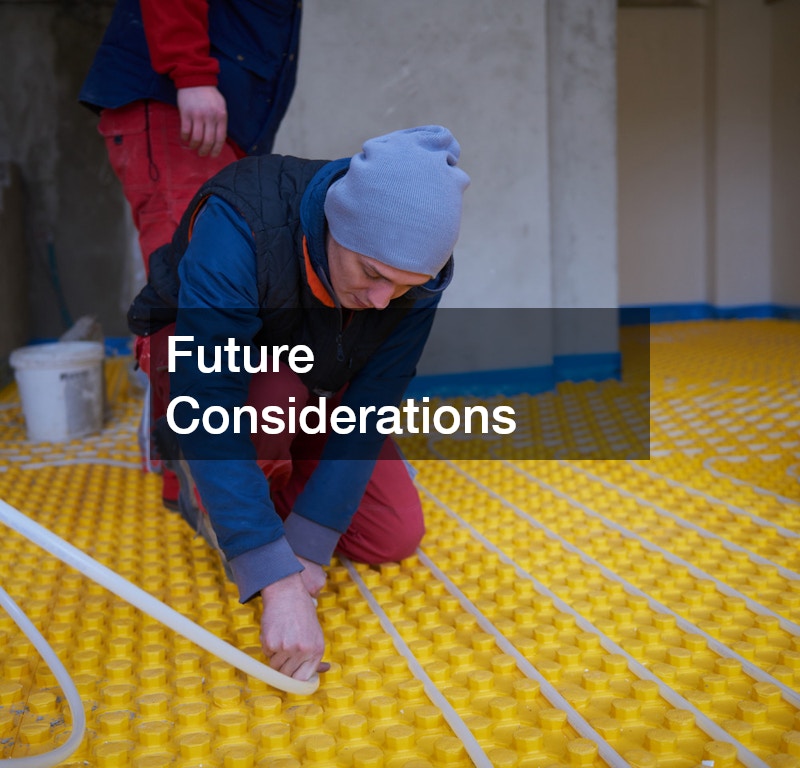What are Energy-Saving HVAC Upgrades?
Energy-saving HVAC upgrades refer to the installation of systems and technologies that help reduce energy consumption and improve efficiency in heating, ventilation, and air conditioning systems. These upgrades are designed to minimize energy waste and lower utility costs while providing optimal comfort and indoor air quality.
Common types of energy-efficient HVAC upgrades include high-efficiency HVAC systems, smart thermostats, and advanced air filtration systems. By investing in these upgrades, homeowners can benefit from enhanced performance, reduced environmental impact, and cost savings in the long run.
The advantages of energy-efficient HVAC upgrades are manifold, including lower energy bills, improved indoor air quality, and a reduced carbon footprint. By upgrading their HVAC systems and choosing wholesale HVAC filters, homeowners can enjoy enhanced comfort, energy efficiency, and sustainability for their homes.

Cost-Effectiveness
Although energy-saving HVAC upgrades may require an initial investment, the long-term savings can far outweigh the upfront costs. By reducing energy consumption and improving efficiency, homeowners can recoup their investment over time through lower utility bills and increased home value.
Furthermore, there are various rebates and incentives available for energy-efficient HVAC upgrades, which can help offset the initial costs. Many local governments, utility companies, and HVAC manufacturers offer financial incentives to encourage homeowners to invest in energy-efficient upgrades.
Calculating the return on investment (ROI) for energy-efficient HVAC upgrades is essential for homeowners looking to make informed decisions. By considering the potential savings, rebates, and increased resale value, homeowners can determine the cost-effectiveness of upgrading their HVAC systems.
Environmental Impact
One of the key benefits of energy-efficient HVAC upgrades is the positive impact on the environment. By reducing energy consumption and minimizing greenhouse gas emissions, homeowners can contribute to a healthier planet and a more sustainable future.
Energy efficiency ratings, such as SEER (Seasonal Energy Efficiency Ratio) for air conditioners and HSPF (Heating Seasonal Performance Factor) for heat pumps, help assess the environmental impact of HVAC systems. Higher efficiency ratings indicate lower energy consumption and reduced environmental harm.
The sustainability of energy-saving HVAC upgrades is crucial for long-term environmental benefits. By investing in energy-efficient technologies and practices, homeowners can minimize their carbon footprint and promote a greener lifestyle for themselves and future generations.
Health Benefits
In addition to reducing energy consumption and lowering utility bills, energy-efficient HVAC upgrades can also improve indoor air quality and enhance overall health and well-being. By removing allergens, pollutants, and contaminants from the air, these upgrades create a healthier living environment for homeowners.
Temperature regulation is essential for maintaining comfort and preventing health issues related to extreme temperatures. Energy-efficient HVAC upgrades help maintain consistent and comfortable indoor temperatures, leading to better sleep quality, respiratory health, and overall comfort for homeowners.
Reducing allergens and pollutants in the air can benefit individuals with allergies, asthma, and other respiratory conditions. Energy-saving HVAC upgrades, such as advanced filtration systems and proper ventilation, help remove harmful particles and maintain a clean and healthy indoor environment.
Government Regulations
Energy Star certification is a key standard for energy-efficient HVAC upgrades, indicating high efficiency and environmental performance. Homeowners can look for Energy Star-certified products when upgrading their HVAC systems to ensure optimal energy savings and environmental benefits.
Building codes and standards set by local and national authorities also play a role in regulating energy efficiency in HVAC systems. Compliance with these regulations is necessary to ensure the safety, performance, and sustainability of energy-saving upgrades for homeowners.
By staying informed about government regulations and industry standards, homeowners can make educated decisions about upgrading their HVAC systems. Working with a reputable HVAC contractor and companies can help ensure compliance with regulations and maximize the benefits of energy-saving upgrades.
Energy Consumption
Reducing energy usage is a primary goal of energy-saving HVAC upgrades, as inefficient heating services and cooling systems can account for a significant portion of a home’s energy consumption. By investing in high-efficiency HVAC systems and smart thermostats, homeowners can lower their energy bills and minimize waste.
Smart thermostats and controls allow homeowners to monitor and adjust their HVAC systems remotely, optimizing energy usage and comfort levels. By programming temperature settings based on occupancy and preferences, homeowners can save energy and reduce their environmental impact.
Peak demand management is another benefit of energy-efficient HVAC upgrades, as these systems help reduce strain on the electrical grid during peak usage periods. By managing energy consumption more effectively, homeowners can contribute to a more stable and sustainable energy infrastructure.

Technological Advancements
Recent advancements in HVAC technology have led to the development of high-efficiency HVAC systems that offer superior performance and energy savings. These systems use innovative components and designs to maximize efficiency and minimize energy waste, providing homeowners with a more sustainable heating and air conditioning solution.
Integration of Internet of Things (IoT) technology in HVAC systems allows for greater control, automation, and energy management. Smart thermostats, sensors, and connectivity features enable homeowners to monitor and optimize their HVAC systems for maximum efficiency and comfort.
Advances in energy-saving technologies, such as variable-speed compressors, heat exchangers, and zoning systems, have revolutionized HVAC efficiency. These technologies enhance performance, improve comfort, and reduce energy consumption, making energy-saving HVAC upgrades a worthwhile investment for homeowners.
Home Value
Investing in energy-saving HVAC upgrades can increase the resale value of a home by enhancing overall energy efficiency and sustainability. Homebuyers are increasingly seeking properties with energy-efficient features, such as high-efficiency HVAC systems, smart thermostats, and advanced insulation, which can attract potential buyers and fetch a higher selling price.
Attracting potential buyers is easier for homeowners with energy-efficient HVAC upgrades, as these features appeal to environmentally conscious and cost-conscious consumers. Energy efficiency certifications, such as Energy Star and LEED (Leadership in Energy and Environmental Design), add value and marketability to a home, making it more desirable in a competitive real estate market.
Local HVAC companies specializing in energy-saving HVAC upgrades can help homeowners assess their current systems, identify opportunities for improvement, and implement cost-effective upgrades. By working with experienced HVAC contractors, homeowners can enhance their home value, comfort, and energy efficiency for long-term benefits.
HVAC Maintenance
In addition to upgrading HVAC systems for energy efficiency, regular maintenance is essential for preserving system performance, efficiency, and longevity. Professional HVAC services, such as inspections, cleanings, and tune-ups, can help ensure optimal operation and prevent costly repairs for homeowners.
Extended lifespan of HVAC systems is a benefit of regular maintenance, as professional upkeep can prolong the life of heating and cooling equipment. By addressing issues early, optimizing performance, and replacing worn parts, homeowners can avoid premature system failure and costly repairs.
Preventive maintenance benefits include improved energy efficiency, indoor air quality, and comfort. By scheduling routine maintenance appointments with a local HVAC company, homeowners can protect their investment, maintain optimal performance, and enjoy a healthier and more efficient home environment.
Industry Trends
The HVAC industry is experiencing a rise in demand for energy-saving HVAC upgrades due to increasing awareness of energy efficiency benefits and environmental concerns. Homeowners are seeking cost-effective solutions to reduce energy consumption, lower utility bills, and minimize their environmental impact, driving market growth for energy-efficient HVAC technologies.
Market growth and opportunities in the HVAC sector are expanding as more homeowners prioritize energy efficiency and sustainability in their homes. HVAC contractors specializing in energy-saving upgrades are well-positioned to capitalize on this trend by offering advanced solutions, personalized services, and innovative technologies to meet consumer demands.
The future of energy-efficient HVAC technology is bright, with ongoing advancements in efficiency, performance, and connectivity. Ductless air conditioner models, geothermal heat pumps, and solar-powered HVAC systems are among the latest innovations driving the industry towards greater sustainability and energy savings for homeowners.

Installation Process
Professional installation services are essential for ensuring the proper setup, operation, and performance of HVAC upgrades. HVAC contractors with experience in energy-efficient systems can provide expert guidance, quality workmanship, and reliable installation services to homeowners looking to upgrade their heating and cooling systems.
Site evaluation and assessment are critical steps in the installation process, as they help determine the specific needs, requirements, and challenges of each home. By conducting a thorough evaluation of the property, HVAC contractors can recommend the most suitable upgrades, HVAC repairs, and technologies for optimal energy efficiency and comfort.
Upgrading existing HVAC systems with energy-saving technologies requires expertise, precision, and attention to detail. HVAC contractors specializing in energy-efficient upgrades can retrofit, replace, or enhance existing systems to improve performance, reduce energy consumption, and enhance indoor air quality for homeowners.
Common Misconceptions
Despite the numerous benefits of energy-saving upgrades, there are common misconceptions that may deter homeowners from investing in these improvements. One common misconception is the high cost of energy-saving upgrades, as many homeowners may underestimate the long-term savings and benefits of energy-efficient systems.
Performance of energy-efficient systems is another concern for homeowners, who may question the effectiveness and reliability of high-efficiency HVAC technologies. However, advances in energy-saving HVAC systems have improved performance, comfort, and efficiency, making them a viable and cost-effective solution for homeowners seeking to reduce energy consumption and lower utility bills.
Compatibility with existing infrastructure is a valid concern for homeowners considering energy-efficient HVAC upgrades, as older homes may have outdated systems that require modifications or replacements. Working with experienced HVAC contractors and local companies specializing in energy-efficient upgrades can help homeowners overcome compatibility issues and optimize their heating and cooling systems for enhanced efficiency and comfort.
Case Studies
Real-life examples of energy-saving HVAC upgrades showcase the measurable benefits and impact of investing in high-efficiency systems. Homeowners who have upgraded their HVAC systems to energy-efficient models have reported significant savings on their energy bills, improved comfort, and better indoor air quality.
Testimonials from homeowners who have experienced the benefits of energy-saving HVAC upgrades can provide valuable insights and recommendations for others considering similar improvements. By sharing their success stories, these homeowners can inspire and educate others on the advantages of energy-efficient systems and the value of investing in sustainable technologies.
Measurable results from HVAC upgrades include reduced energy consumption, lower utility bills, and increased comfort and indoor air quality. By quantifying the savings and benefits of upgrading their HVAC systems, homeowners can make informed decisions and reap the rewards of a more efficient, comfortable, and sustainable home environment.

Future Considerations
Ongoing maintenance and monitoring are essential for maximizing the performance, efficiency, and longevity of energy-saving upgrades. Regular inspections, cleanings, and tune-ups by HVAC professionals can help ensure optimal operation, energy savings, and indoor comfort for homeowners.
Advancements in energy-saving HVAC technology are continually evolving, with new features, capabilities, and efficiencies being developed to enhance performance and sustainability. By staying informed about the latest trends and technologies in the HVAC industry, homeowners can make informed decisions about upgrading their heating and cooling systems for optimal energy efficiency and comfort.
Adapting to changing environmental policies and regulations is crucial for homeowners looking to maintain energy efficiency and sustainability in their homes. By staying compliant with government standards, seeking Energy Star certification, and investing in energy-saving upgrades, homeowners can reduce their carbon footprint, lower utility bills, and create a more comfortable and healthy living environment for themselves and their families.
In conclusion, HVAC upgrades offer numerous benefits for homeowners, including cost savings, improved indoor air quality, environmental sustainability, and enhanced comfort. By investing in high-efficiency HVAC systems, smart thermostats, and advanced technologies, homeowners can reduce energy consumption, lower utility bills, and create a healthier and more sustainable home environment.
Working with reputable HVAC contractors and local companies specializing in energy-saving upgrades can help homeowners assess their needs, identify opportunities for improvement, and implement cost-effective solutions tailored to their home and budget. By staying informed about industry trends, technological advancements, and government regulations, homeowners can make informed decisions about upgrading their HVAC systems for optimal performance, efficiency, and comfort.
As the demand for energy-saving HVAC upgrades continues to rise, homeowners have access to a wide range of solutions, incentives, and technologies to enhance their home energy efficiency and sustainability. By considering the long-term benefits, environmental impact, and health advantages of energy-saving upgrades, homeowners can create a more comfortable, efficient, and sustainable living environment for themselves and future generations.


